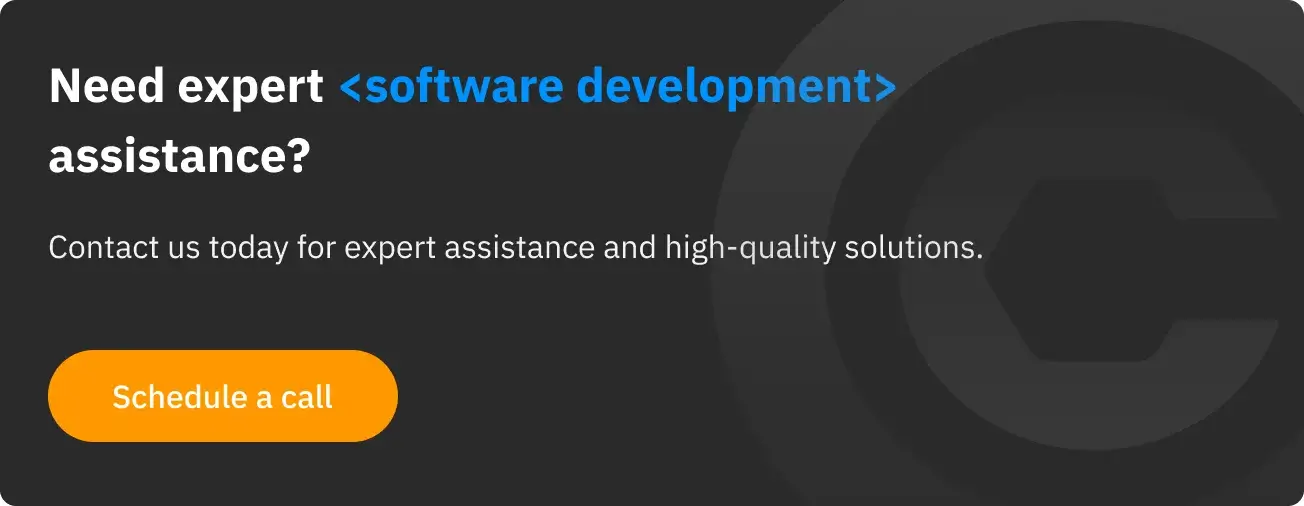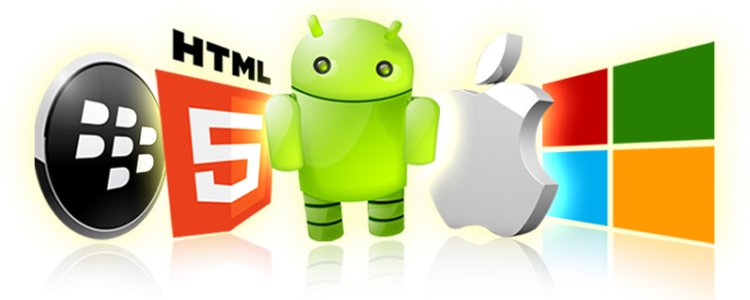According to Forrester study, 60% of agencies are interested in cross-platform development now. Сreating cross-platform applications allows companies to save a lot of efforts & time. Moreover, it is much less expensive compared to native app development. These are just few of benefits that this type of development offers to companies.
However, to make your app development project successful, you should leverage all the benefits and pitfalls it includes. First and foremost, find out if creating a multi-platform solution is the right strategy for you.
It might be so in one of the following cases:
- you want to create social application targeting a large user base. For example, Slack or Facebook-type solutions will bring expected results only if they are available on multiple platforms. So the multi-cloud strategy is highly recommended in this case.
- you are limited in terms of budget/resources. As we mentioned above, companies invest less time, money and developer efforts in building a cross-platform app. If you need to release your app pretty soon, independent-platform is a go-to solution.
- you are a large enterprise willing to increase your customer base. If you’re working in a big company, reaching your clients base on a new platform can make a huge difference for your business. If you’re a small agency, it will hardly make any changes.
Meanwhile, building cross-platform apps might not be the best strategy for you if:
- you need an app with perfect aesthetics which don’t change
- security is of vital importance for you
Of course, there are thousands of other reasons driving you to create an app or stopping from doing it. However, three main points – goals, target users and business strategy should lead you in the right direction.

Top 5 advices for successful cross-platform mobile app development

While there is no advice to guarantee you success, here is the list of steps you can make to ensure your future app will be well-functioning and profitable.
1 – Create platform-centered design instead of a generic one.
The key here is to find a balance between design consistency and platform guidelines. Your cross-platform app should be easy to use and fit perfectly into each type of platform. If you create a platform-independent design, your app will look the same on any market and device. Also, avoid copying and mimicking design from other platforms. Instead, benefit from platform-specific features. The real experts in cross-platform app development will know how to use the standards of each platform to your advantage. Try some cool features that are only available on iOS or Android. By doing so, you offer your target audience user experience meeting their expectations.
2 – Use the pre-built modules & components.
You can reuse from 50 to 80% of code across different platforms. Such an approach offers multiple advantages to businesses. For instance, it can speed up the development process, cut the overall budget and facilitate software creation. So, select the right instruments or, better yet, hire the best specialists. Experienced mobile app developers have already developed these elements previously. They will import code snippets and modules into the programming code, reducing the amount of work which needs to be done.
3 – Test on each platform, and test often.
A crucial differentiator of cross-platform development is that it requires more testing efforts than other types of apps. Don’t underestimate the value of QA services. In fact, it is the most effective way to avoid consistency, usability and performance issues. With cross-platform development, you should test every version of your app running on its own platform. Avoid making conclusions just because you tested it on another platform. Moreover, repeat your testing regularly so that you can immediately solve the problem when it arises.
4 – Make your team members exchange their knowledge.
Any successful collaboration starts with a team. When working on a cross-platform app development, designers and programmers should constantly educate each other. For example, UI/UX specialists need to understand the differences in navigation & ways to present the information between different platforms. Generally speaking, programming & UI/UX teams should work together. This allows to avoid possible misunderstandings & last-minute changes. Also, learn Agile & Scrum methodologies to manage your team effectively and monitor its work progress.
5 – Keep up with platform updates & changes.
There are important upgrades & fixes happening regularly to each type of platform. To keep your application up-to-date and well-functioning, make sure you test your solution after every new update. Each time the iOS or Android gets any modifications, pay attention to them. Providing your software with proper maintenance & support will bring you more satisfied users. And this, in turn, will lead to better outcome.
Cross platform mobile development tools - which one to choose?

To make your cross-platform app development even more productive, use the tool or a framework. However, it’s important to choose those tools & frameworks which are great for your particular project. Here’s the list of the most popular options you should consider:
-
Sencha
Touch This framework can respond to the highest app development requirements. The tool can greatly increase the team productivity and save the time spent on coding for each platform separately. Moreover, it is quite simple to use: a GUI tool called Sencha Architect allows to create interfaces in drag-and-drop model. A general working principle is the following: programmers write their code in HTML5, and then use PhoneGap to convert it into cross-platform apps.
-
PhoneGap
Developed by Adobe, this tool is among the most popular in cross-platform development niche. Such popularity can be explained by great variety of features and benefits it provides. It speeds up software development and cuts down programmers efforts. With its help, you can create any type of apps for Android, iPhone, Windows and BlackBerry. By converting the cross-platform code to native, you make the app run as if it was created particularly for user’s device. In other words, the application gets a native look and feel. So, if you need to build your app in a fast & secure way, PhoneGap is the right solution for you.
-
Appcelerator
The name speaks for itself – this framework accelerates the app time-to-market, supporting mobile analytics in real time. It is the only tool that supports native GUI-components. What is more, it supports HTML5 and hybrid solutions. This API provides the app with native look and feel, and is followed by extensive support. Appcelerator Titanium gets regular improvements, trying to respond to user requirements.
-
Xamarin
Using this tool, you can build applications available on any modern platforms. A single knowledge of C# programming language is enough to start the app development project. Solutions built with Xamarin are high-performance & visually-appealing, providing customers with enjoyable user experience. Moreover, a big part of the programming code can be reused in iOS, Windows Phone and Android apps.
Will your cross-platform development project be a success or a failure?

You decide. While it’s impossible to predict the future issues or ever-changing market trends, there are so many aspects which depend on you: resources, skills, timeframes and planning. Hiring experienced app developers is the half-way to success. We can help you find those tech experts and begin productive cooperation with them.
Relying on our years experience with IT & app development projects, CyberCraft provides talented resources for your business needs. Contact us now and lead your cross-platform development to success!




